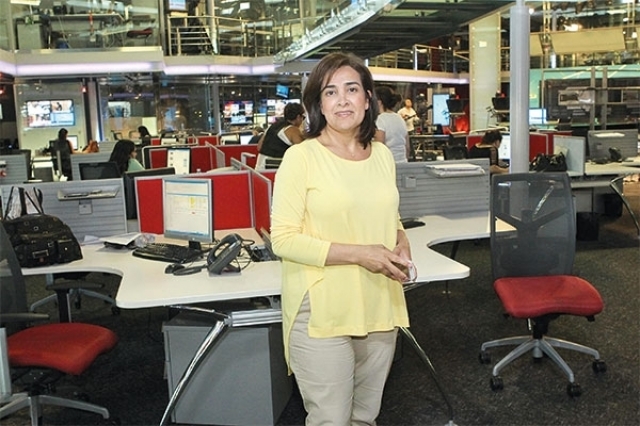Lebanese freedom eroded by harassment of journalists
ديانا مقلد: الحريات في لبنان تتآكل بسبب مضايقة الصحافيين
Diana Moukalled/Arab News/July 10/18
The Lebanese journalist Fidaa Itani was last month sentenced to four months in prison and fined for insulting the Lebanese Foreign Minister Gebran Bassil in a comment he posted on social media. Bassil has filed 11 cases against Itani alone, while he also has complaints pending against other journalists, bloggers and activists.
Days after the verdict against Itani, another journalist was sentenced to prison and stripped of his civil rights on similar charges related to criticizing religious symbols. Also this year, journalist Hanin Ghaddar was jailed in absentia for six months by a military court for participating in a seminar in the United States in 2014, in which she criticized the Lebanese army; although the decision was repealed weeks later. In between these verdicts, there was a large series of arrests, interrogations, censorship and fines against people who had expressed opinions online.
Indeed, in Lebanon, since the arrival of President Michel Aoun in 2016, there has been a worrying rise in the level of harassment of journalists, bloggers and citizens who have expressed opinions, however harsh or sometimes rude these comments might have been. In general, freedom of expression in Western countries means punishments are limited to fines or apologies, but here in the Middle East and in Lebanon some comments are punished by imprisonment; an outdated penalty for such issues, no matter how disturbing the views expressed.
The problem is also the need to expand the concept of being open to criticism, especially for public figures, whose positions and performance may often be questioned and criticized.
Insults and hatred are not the best way to express anger, but this does not mean that those who insult and curse are equal to those who persecute others.
Diana Moukalled
Because we live in a populist era where hatred and discrimination are presented as “patriotism,” some practices and abuses can push certain people to transcend the boundaries of courteousness when expressing their objections. The question is, didn’t the Lebanese authorities, time and again, go beyond citizens’ rights through corruption, quotas, violation of sovereignty, and conceding to militias and parties, among an endless list of practices?
Bassil sued Itani for defamation because of a stinging comment he made after the death of four Syrian refugees allegedly due to torture in Lebanese Army prisons in the summer of 2017. The judge decided to imprison Itani and fine him, but he had already left the country and become an exile in the UK.
How can it be explained to Bassil, for example, that the deaths of Syrian refugees due to torture in the prisons of the Lebanese Army is bad and leads to understandable anger, and this was what Itani expressed in his harsh comment?
Social media has opened wide the door to abuse and insults, as each person has his own platform where he posts his words and insults. So do we imprison everyone? And should people attack each other because of that?
There is no doubt that the language of slander and defamation has spread widely and it is damaging the just causes, but the preoccupation with hunting people who use rude language is ridiculous. Certainly, the language of insults and hatred is not the best way to express anger, nor is it a convincing way, but it does not mean that the people who insult and curse are equal to those who persecute others.
In Lebanon, officials and citizens say that our country has no oil, no industry, no financial strength, but is characterized as a space of freedom. This is partly true, especially in the past, but observing what is happening in the country now makes us believe that we should reconsider this statement.
*Diana Moukalled is a veteran journalist with extensive experience in both traditional and new media. Twitter: @dianamoukalled



















